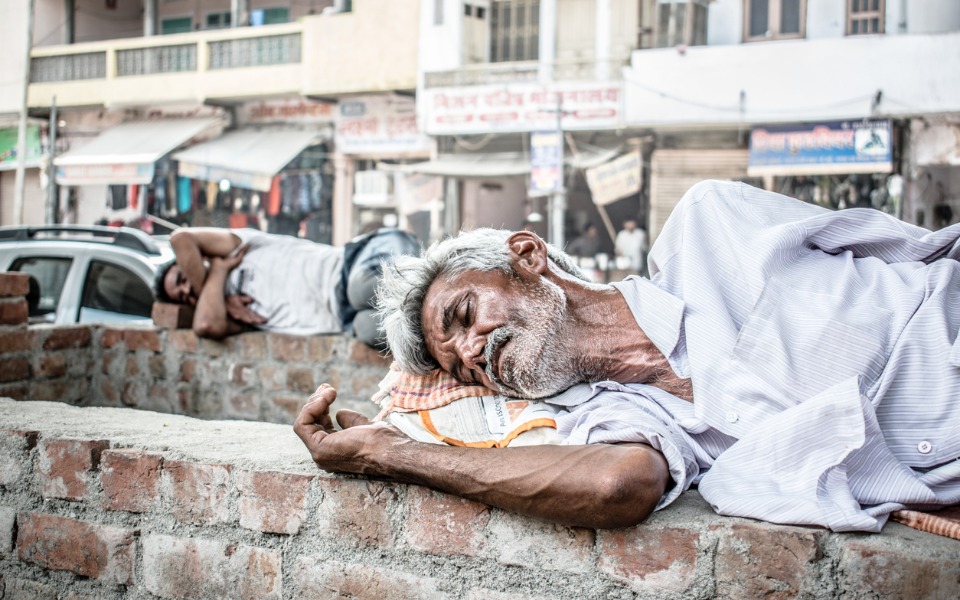
COVID-19: Senior citizens declared persona non-grata by kin, old-age homes
Ever since the lockdown was enforced in India in the month of March, K Krishnakumar* (59) has been constantly abused and accused of being a burden to the family and not going to work anywhere.

Ever since the lockdown was enforced in India in the month of March, K Krishnakumar* (59) has been constantly abused and accused of being a burden to the family and not going to work anywhere.
“Until two years ago, I was working even after getting my daughters and son married. But, I could not work after a point as my health condition worsened. So, I retired. However, things became worse only after that,” says Krishnakumar, a resident of Tambaram.
According to him, his son has been making calls to at least three old-age homes every day to know about the charges and facilities in these homes.
“But, he does not seem convinced. He also appears to be uncomfortable having me at home. This worsened after the lockdown since all of us are in the house all the time,” Krishnakumar added.
It was not just Krishnakumar who was on the verge of being admitted to old-age homes.
P Mahendran, founder of Era Nenjam, an organisation working for the support and care of abandoned children and senior citizens in Coimbatore, said he receives at least four calls a day from different people to take in abandoned elderly people who were on the streets or in front of government hospitals.
Related news | Retirement homes not a relief for senior citizens anymore
“Before the lockdown, we would get calls once in a while to rescue and take care of people who were left outside government hospitals. But now, they are leaving old people at bus stops and other places and abandoning them. Since they could not recognise the place, we took them to our home,” he says.
But, in the wake of the pandemic, he was scared that he may not be able to take care of these senior citizens.
“If it was during any other normal situation, we would take care of people ourselves instead of finding their children and asking them to look after their parents. But, now, since old people are more vulnerable to COVID-19 than other age groups, they need more attention and extra care. So, we found and contacted the son/daughter of four of the numerous senior citizens we rescued, and took them back to their houses with the help of police,” he said.
“Few were not ready to take them back, but we warned them with the help of the police. If they are not ready to have their parents at home for a long period, they can admit them at our old-age homes after the pandemic settles,” he added.
A few old-age homes The Federal spoke to were also worried about taking care of old people in their homes in the wake of the coronavirus.
“We have been hearing about an outbreak of the virus in several children’s homes. But, if it happens in an old-age home, it would be more difficult to take care of them. We had around 80 elderly people here. We called some of the caretakers or guardians of these people in Chennai and neighbouring districts to come and take them back to their houses. Now, we are taking care of 36 people,” an owner of an old-age home, who wished to remain anonymous, said.Retirement homes not a relief for senior citizens anymore
According to a survey conducted by Helpage India from approximately 5,000 participants across the country, 65 percent of India’s senior citizens have lost their livelihood during the lockdown, while 60 percent of them feel they are socially isolated in their own houses during the lockdown. Similarly, around 35 percent of the elderly feared economic losses and starvation, while 40 percent of them had reported worsening health conditions.
The Deputy Commissioner of Chennai said they had not received any formal complaint about children abandoning their elderly parents. “However, we receive some complaints via the control room and they are sorted out as soon as the police intervene,” the officer said.
However, a police officer in the Coimbatore city police said that they would encounter such cases frequently. “But, these senior citizens would be mostly from other districts and we do not have jurisdiction powers for that. In certain cases, even when we attempted to book the children for abandoning their parents, the parents were not ready to file a formal complaint. These cases are very tricky to handle. Unlike other cases, we cannot proceed with legal action as soon as an incident is reported,” the officer said.
After the Supreme Court ruled abandoning parents as a punishable crime, the Union government on December 29, 2007 introduced the Maintenance and Welfare of Parents and Senior Citizens Act, 2007. According to this Act, children (both sons and daughters) are supposed to take care of their parents, and abandoning them is a punishable offence. Later, the Act was amended in 2018 in such a way that the son-in-law and daughter-in-law should also take care of their spouses’ parents.
The Act also mandates the creation of maintenance tribunals to address the complaints of the parents and elderly people. It also mandated the setting up of old-age homes by the government as a social welfare measure. Though most of the state governments have state-run old-age homes, there appears to be no maintenance tribunals set up by the government.


